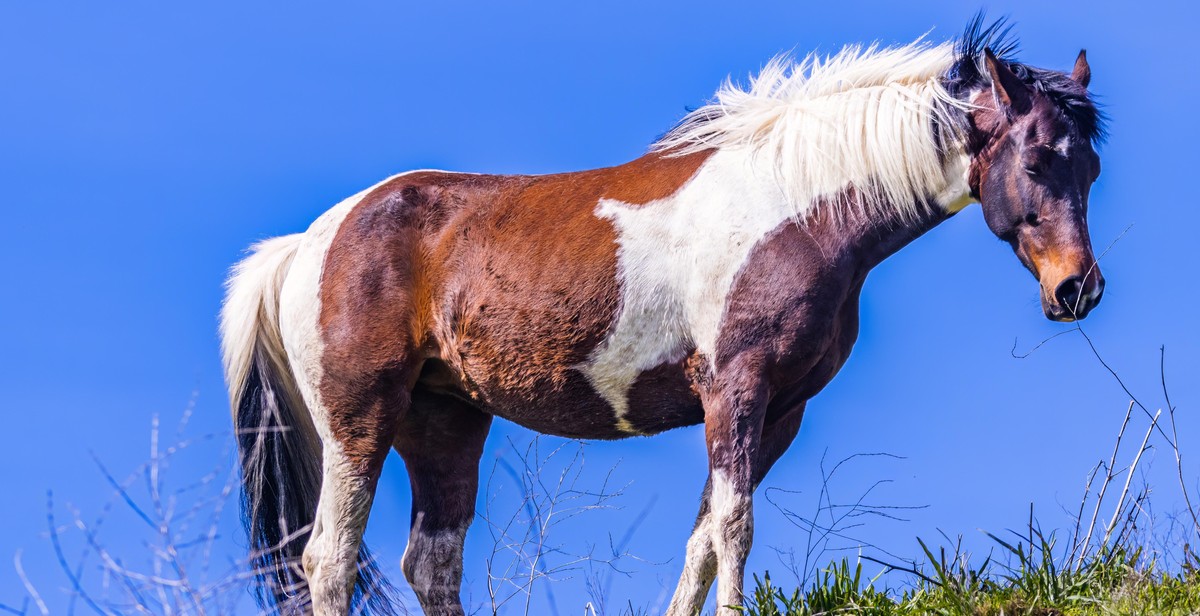How to Identify Common Horse Illnesses
As a lifelong horse owner and experienced equestrian, I have seen my fair share of equine illnesses and injuries. Horses, like any animal, are susceptible to a variety of ailments and it’s important to be able to recognize the symptoms of common illnesses in order to seek appropriate veterinary care.
Why is it important to identify horse illnesses?
Early detection and treatment of equine illnesses can mean the difference between life and death for your horse. Many illnesses can quickly escalate and become severe if left untreated, so it’s crucial to be able to recognize the signs of an illness and seek veterinary care as soon as possible.
What are some common horse illnesses?
Some common horse illnesses include colic, laminitis, equine influenza, strangles, and equine herpesvirus. Each of these illnesses has its own set of symptoms and potential complications, so it’s important to be familiar with them in order to accurately identify them.
How can you recognize the symptoms of a horse illness?
There are many different symptoms that can indicate an equine illness, including changes in behavior, appetite, and energy level, as well as physical symptoms like fever, coughing, and diarrhea. Paying close attention to your horse’s overall health and behavior can help you to identify when something is amiss.
In this article, we’ll take a closer look at some of the most common horse illnesses and their symptoms, as well as provide tips for seeking veterinary care and keeping your horse healthy.

Why it’s Important to Recognize Horse Illnesses
As a horse owner, recognizing common horse illnesses is crucial in maintaining the health and well-being of your equine companion. By being able to identify the early symptoms of an illness, you can seek veterinary care promptly and prevent the illness from progressing to a more serious stage.
Preventative Care
Recognizing horse illnesses is an integral part of preventative care. By being aware of the symptoms of common illnesses, you can take steps to prevent them from occurring in the first place. This can include vaccination, regular deworming, and keeping your horse in a clean and safe environment. By taking preventative measures, you can minimize the risk of your horse falling ill and reduce the need for costly medical treatment.
Early Treatment
Early treatment is key in managing horse illnesses. By recognizing the symptoms of an illness early on, you can seek veterinary care promptly and begin treatment before the illness progresses. This can help to reduce the severity of the illness and minimize the risk of complications. In some cases, early treatment can even prevent the need for more invasive procedures or surgeries, which can be costly and time-consuming.
Reducing Medical Costs
Recognizing horse illnesses can also help to reduce medical costs. By seeking veterinary care early on, you can prevent the illness from progressing to a more serious stage, which can require more extensive and costly treatment. Additionally, by taking preventative measures to minimize the risk of your horse falling ill, you can reduce the need for costly medical treatment in the first place.
| Benefits of Recognizing Horse Illnesses | |
|---|---|
| Preventative Care | Minimizes the risk of your horse falling ill |
| Early Treatment | Reduces the severity of the illness and minimizes the risk of complications |
| Reducing Medical Costs | Prevents the illness from progressing to a more serious stage and reduces the need for costly medical treatment |
Overall, recognizing horse illnesses is essential in maintaining the health and well-being of your equine companion. By taking preventative measures, seeking veterinary care promptly, and being aware of the early symptoms of common illnesses, you can minimize the risk of your horse falling ill, reduce the severity of illnesses, and minimize medical costs.
Common Horse Illnesses and Their Symptoms
Colic
Colic is a common and potentially life-threatening condition in horses. It can be caused by a variety of factors, including intestinal blockages, gas buildup, and digestive upset. Symptoms of colic can include:
- Pawing at the ground
- Rolling or lying down excessively
- Loss of appetite
- Excessive sweating
- Abdominal pain or discomfort
If you suspect your horse has colic, it is important to seek veterinary care immediately.
Lameness
Lameness is another common issue that can affect horses of all ages and breeds. It can be caused by a variety of factors, including injuries, arthritis, and hoof problems. Symptoms of lameness can include:
- Limping or favoring one leg
- Difficulty walking or standing
- Swelling or heat in the affected area
- Pain or discomfort when touched
If your horse is experiencing lameness, it is important to have them evaluated by a veterinarian to determine the underlying cause and appropriate treatment.
Respiratory Issues
Respiratory issues can also be a concern for horse owners, particularly in horses that are stabled or kept in dusty or poorly ventilated environments. Symptoms of respiratory issues can include:
- Coughing or wheezing
- Nasal discharge or congestion
- Difficulty breathing or rapid breathing
- Loss of appetite or weight loss
If you suspect your horse is experiencing respiratory issues, it is important to consult with a veterinarian to determine the best course of treatment.
Digestive Issues
Like colic, digestive issues can be a serious concern for horse owners. Symptoms of digestive issues can include:
- Diarrhea or loose stools
- Loss of appetite or weight loss
- Abdominal pain or discomfort
- Lethargy or depression
If you suspect your horse is experiencing digestive issues, it is important to seek veterinary care as soon as possible to prevent further complications.
Skin Conditions
Skin conditions can also be a concern for horse owners, particularly in horses that are kept in damp or dirty environments. Symptoms of skin conditions can include:
- Scabs or crusty patches on the skin
- Hair loss or thinning
- Itching or scratching
- Bumps or lumps on the skin
If you suspect your horse is experiencing skin issues, it is important to have them evaluated by a veterinarian to determine the underlying cause and appropriate treatment.
| Illness | Symptoms |
|---|---|
| Colic | Pawing at the ground, rolling or lying down excessively, loss of appetite, excessive sweating, abdominal pain or discomfort |
| Lameness | Limping or favoring one leg, difficulty walking or standing, swelling or heat in the affected area, pain or discomfort when touched |
| Respiratory Issues | Coughing or wheezing, nasal discharge or congestion, difficulty breathing or rapid breathing, loss of appetite or weight loss |
| Digestive Issues | Diarrhea or loose stools, loss of appetite or weight loss, abdominal pain or discomfort, lethargy or depression |
| Skin Conditions | Scabs or crusty patches on the skin, hair loss or thinning, itching or scratching, bumps or lumps on the skin |
When to Seek Veterinary Care for Your Horse
As a horse owner, it is essential to recognize when your horse needs veterinary care. Some illnesses and injuries require immediate attention, while others may be less urgent. Here are some signs that indicate your horse needs veterinary care:
1. Abnormal Vital Signs
Abnormal vital signs such as a high heart rate, respiratory rate, or fever are an indication that your horse is unwell. If your horse’s vital signs are outside the normal range, it is best to call your veterinarian for advice.
2. Colic
Colic is a common and potentially life-threatening condition in horses. Signs of colic include pawing, kicking at the belly, rolling, and sweating. If you suspect your horse has colic, contact your veterinarian immediately.
3. Lameness
Lameness in horses can be caused by a variety of factors, including injury, infection, and disease. Signs of lameness include limping, reluctance to move, and swelling. If your horse is lame, contact your veterinarian for an evaluation.
4. Wounds
Wounds in horses can range from minor cuts and scrapes to deep lacerations. Any wound that is bleeding heavily or exposing bone or muscle requires immediate veterinary attention.
5. Respiratory Issues
Respiratory issues such as coughing, nasal discharge, and difficulty breathing can indicate a serious illness such as pneumonia or heaves. If your horse is experiencing respiratory distress, contact your veterinarian immediately.
6. Changes in Eating or Drinking Habits
Changes in your horse’s eating or drinking habits can indicate an illness or injury. If your horse is not eating or drinking normally, contact your veterinarian for advice.
7. Behavioral Changes
Changes in your horse’s behavior can indicate an underlying health issue. Signs of behavioral changes include lethargy, depression, and aggression. If your horse is exhibiting any of these behaviors, contact your veterinarian for advice.
8. Routine Check-Ups
Regular veterinary check-ups are essential to ensure your horse’s overall health and well-being. Your veterinarian can perform routine exams, vaccinations, and dental care to keep your horse healthy and prevent illness.
Conclusion
Knowing when to seek veterinary care for your horse is crucial to maintaining their health and well-being. If you notice any of the above signs or are concerned about your horse’s health, contact your veterinarian immediately. Early detection and treatment of illnesses and injuries can save your horse’s life.

Conclusion
As a horse owner, it is important to be able to recognize the common illnesses that can affect your horse. By knowing the symptoms and seeking veterinary care as soon as possible, you can help ensure your horse receives the proper treatment and has the best chance of recovering.
Remember to keep a close eye on your horse’s behavior and appearance, and don’t hesitate to contact your veterinarian if you notice any changes or concerns. It is always better to be safe than sorry when it comes to your horse’s health.
Additionally, taking preventative measures such as regular vaccinations, deworming, and proper nutrition can help keep your horse healthy and reduce the risk of illness. Maintaining a clean and safe environment for your horse can also help prevent the spread of disease.
By staying informed and proactive, you can help ensure your horse leads a happy and healthy life. Keep learning and educating yourself on horse health, and don’t hesitate to seek guidance from your veterinarian or other experienced horse owners.
| Key Takeaways: |
|
